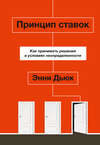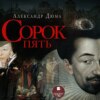Читать книгу: «Celebrated Crimes (Complete)»
NOTE:
Dumas's 'Celebrated Crimes' was not written for children. The novelist has spared no language – has minced no words – to describe the violent scenes of a violent time.
"In some instances facts appear distorted out of their true perspective, and in others the author makes unwarranted charges. It is not within our province to edit the historical side of Dumas, any more than it would be to correct the obvious errors in Dickens's Child's History of England. The careful, mature reader, for whom the books are intended, will recognize, and allow for, this fact.
INTRODUCTION
The contents of these volumes of 'Celebrated Crimes', as well as the motives which led to their inception, are unique. They are a series of stories based upon historical records, from the pen of Alexandre Dumas, pere, when he was not "the elder," nor yet the author of D'Artagnan or Monte Cristo, but was a rising young dramatist and a lion in the literary set and world of fashion.
Dumas, in fact, wrote his 'Crimes Celebres' just prior to launching upon his wonderful series of historical novels, and they may therefore be considered as source books, whence he was to draw so much of that far-reaching and intimate knowledge of inner history which has perennially astonished his readers. The Crimes were published in Paris, in 1839-40, in eight volumes, comprising eighteen titles – all of which now appear in the present carefully translated text. The success of the original work was instantaneous. Dumas laughingly said that he thought he had exhausted the subject of famous crimes, until the work was off the press, when he immediately became deluged with letters from every province in France, supplying him with material upon other deeds of violence! The subjects which he has chosen, however, are of both historic and dramatic importance, and they have the added value of giving the modern reader a clear picture of the state of semi-lawlessness which existed in Europe, during the middle ages. "The Borgias, the Cenci, Urbain Grandier, the Marchioness of Brinvilliers, the Marchioness of Ganges, and the rest – what subjects for the pen of Dumas!" exclaims Garnett.
Space does not permit us to consider in detail the material here collected, although each title will be found to present points of special interest. The first volume comprises the annals of the Borgias and the Cenci. The name of the noted and notorious Florentine family has become a synonym for intrigue and violence, and yet the Borgias have not been without stanch defenders in history.
Another famous Italian story is that of the Cenci. The beautiful Beatrice Cenci – celebrated in the painting of Guido, the sixteenth century romance of Guerrazi, and the poetic tragedy of Shelley, not to mention numerous succeeding works inspired by her hapless fate – will always remain a shadowy figure and one of infinite pathos.
The second volume chronicles the sanguinary deeds in the south of France, carried on in the name of religion, but drenching in blood the fair country round about Avignon, for a long period of years.
The third volume is devoted to the story of Mary Queen of Scots, another woman who suffered a violent death, and around whose name an endless controversy has waged. Dumas goes carefully into the dubious episodes of her stormy career, but does not allow these to blind his sympathy for her fate. Mary, it should be remembered, was closely allied to France by education and marriage, and the French never forgave Elizabeth the part she played in the tragedy.
The fourth volume comprises three widely dissimilar tales. One of the strangest stories is that of Urbain Grandier, the innocent victim of a cunning and relentless religious plot. His story was dramatised by Dumas, in 1850. A famous German crime is that of Karl-Ludwig Sand, whose murder of Kotzebue, Councillor of the Russian Legation, caused an international upheaval which was not to subside for many years.
An especially interesting volume is number six, containing, among other material, the famous "Man in the Iron Mask." This unsolved puzzle of history was later incorporated by Dumas in one of the D'Artagnan Romances a section of the Vicomte de Bragelonne, to which it gave its name. But in this later form, the true story of this singular man doomed to wear an iron vizor over his features during his entire lifetime could only be treated episodically. While as a special subject in the Crimes, Dumas indulges his curiosity, and that of his reader, to the full. Hugo's unfinished tragedy,'Les Jumeaux', is on the same subject; as also are others by Fournier, in French, and Zschokke, in German.
Other stories can be given only passing mention. The beautiful poisoner, Marquise de Brinvilliers, must have suggested to Dumas his later portrait of Miladi, in the Three Musketeers, the mast celebrated of his woman characters. The incredible cruelties of Ali Pacha, the Turkish despot, should not be charged entirely to Dumas, as he is said to have been largely aided in this by one of his "ghosts," Mallefille.
"Not a mere artist" – writes M. de Villemessant, founder of the Figaro, – "he has nevertheless been able to seize on those dramatic effects which have so much distinguished his theatrical career, and to give those sharp and distinct reproductions of character which alone can present to the reader the mind and spirit of an age. Not a mere historian, he has nevertheless carefully consulted the original sources of information, has weighed testimonies, elicited theories, and.. has interpolated the poetry of history with its most thorough prose."
THE BORGIAS
PROLOGUE
On the 8th of April, 1492, in a bedroom of the Carneggi Palace, about three miles from Florence, were three men grouped about a bed whereon a fourth lay dying.
The first of these three men, sitting at the foot of the bed, and half hidden, that he might conceal his tears, in the gold-brocaded curtains, was Ermolao Barbaro, author of the treatise 'On Celibacy', and of 'Studies in Pliny': the year before, when he was at Rome in the capacity of ambassador of the Florentine Republic, he had been appointed Patriarch of Aquileia by Innocent VIII.
The second, who was kneeling and holding one hand of the dying man between his own, was Angelo Poliziano, the Catullus of the fifteenth century, a classic of the lighter sort, who in his Latin verses might have been mistaken for a poet of the Augustan age.
The third, who was standing up and leaning against one of the twisted columns of the bed-head, following with profound sadness the progress of the malady which he read in the face of his departing friend, was the famous Pico della Mirandola, who at the age of twenty could speak twenty-two languages, and who had offered to reply in each of these languages to any seven hundred questions that might be put to him by the twenty most learned men in the whole world, if they could be assembled at Florence.
The man on the bed was Lorenzo the Magnificent, who at the beginning of the year had been attacked by a severe and deep-seated fever, to which was added the gout, a hereditary ailment in his family. He had found at last that the draughts containing dissolved pearls which the quack doctor, Leoni di Spoleto, prescribed for him (as if he desired to adapt his remedies rather to the riches of his patient than to his necessities) were useless and unavailing, and so he had come to understand that he must part from those gentle-tongued women of his, those sweet-voiced poets, his palaces and their rich hangings; therefore he had summoned to give him absolution for his sins – in a man of less high place they might perhaps have been called crimes – the Dominican, Giralamo Francesco Savonarola.
It was not, however, without an inward fear, against which the praises of his friends availed nothing, that the pleasure-seeker and usurper awaited that severe and gloomy preacher by whose word's all Florence was stirred, and on whose pardon henceforth depended all his hope far another world.
Indeed, Savonarola was one of those men of stone, coming, like the statue of the Commandante, to knock at the door of a Don Giovanni, and in the midst of feast and orgy to announce that it is even now the moment to begin to think of Heaven. He had been born at Ferrara, whither his family, one of the most illustrious of Padua, had been called by Niccolo, Marchese d'Este, and at the age of twenty-three, summoned by an irresistible vocation, had fled from his father's house, and had taken the vows in the cloister of Dominican monks at Florence. There, where he was appointed by his superiors to give lessons in philosophy, the young novice had from the first to battle against the defects of a voice that was both harsh and weak, a defective pronunciation, and above all, the depression of his physical powers, exhausted as they were by too severe abstinence.
Savonarala from that time condemned himself to the most absolute seclusion, and disappeared in the depths of his convent, as if the slab of his tomb had already fallen over him. There, kneeling on the flags, praying unceasingly before a wooden crucifix, fevered by vigils and penances, he soon passed out of contemplation into ecstasy, and began to feel in himself that inward prophetic impulse which summoned him to preach the reformation of the Church.
Nevertheless, the reformation of Savonarola, more reverential than Luther's, which followed about five-and-twenty years later, respected the thing while attacking the man, and had as its aim the altering of teaching that was human, not faith that was of God. He did not work, like the German monk, by reasoning, but by enthusiasm. With him logic always gave way before inspiration: he was not a theologian, but a prophet. Yet, although hitherto he had bowed his head before the authority of the Church, he had already raised it against the temporal power. To him religion and liberty appeared as two virgins equally sacred; so that, in his view, Lorenzo in subjugating the one was as culpable as Pope Innocent VIII in dishonouring the other. The result of this was that, so long as Lorenzo lived in riches, happiness, and magnificence, Savonarola had never been willing, whatever entreaties were made, to sanction by his presence a power which he considered illegitimate. But Lorenzo on his deathbed sent for him, and that was another matter. The austere preacher set forth at once, bareheaded and barefoot, hoping to save not only the soul of the dying man but also the liberty of the republic.
Lorenzo, as we have said, was awaiting the arrival of Savonarola with an impatience mixed with uneasiness; so that, when he heard the sound of his steps, his pale face took a yet more deathlike tinge, while at the same time he raised himself on his elbow and ordered his three friends to go away. They obeyed at once, and scarcely had they left by one door than the curtain of the other was raised, and the monk, pale, immovable, solemn, appeared on the threshold. When he perceived him, Lorenzo dei Medici, reading in his marble brow the inflexibility of a statue, fell back on his bed, breathing a sigh so profound that one might have supposed it was his last.
The monk glanced round the room as though to assure himself that he was really alone with the dying man; then he advanced with a slow and solemn step towards the bed. Lorenzo watched his approach with terror; then, when he was close beside him, he cried:
"O my father, I have been a very great sinner!"
"The mercy of God is infinite," replied the monk; "and I come into your presence laden with the divine mercy."
"You believe, then, that God will forgive my sins?" cried the dying man, renewing his hope as he heard from the lips of the monk such unexpected words.
"Your sins and also your crimes, God will forgive them all," replied Savonarola. "God will forgive your vanities, your adulterous pleasures, your obscene festivals; so much for your sins. God will forgive you for promising two thousand florins reward to the man who should bring you the head of Dietisalvi, Nerone Nigi, Angelo Antinori, Niccalo Soderini, and twice the money if they were handed over alive; God will forgive you for dooming to the scaffold or the gibbet the son of Papi Orlandi, Francesco di Brisighella, Bernardo Nardi, Jacopo Frescobaldi, Amoretto Baldovinetti, Pietro Balducci, Bernardo di Banding, Francesco Frescobaldi, and more than three hundred others whose names were none the less dear to Florence because they were less renowned; so much for your crimes." And at each of these names which Savonarala pronounced slowly, his eyes fixed on the dying man, he replied with a groan which proved the monk's memory to be only too true. Then at last, when he had finished, Lorenzo asked in a doubtful tone:
"Then do you believe, my father, that God will forgive me everything, both my sins and my crimes?"
"Everything," said Savonarola, "but on three conditions."
"What are they?" asked the dying man.
"The first," said Savonarola, "is that you feel a complete faith in the power and the mercy of God."
"My father," replied Lorenzo eagerly, "I feel this faith in the very depths of my heart."
"The second," said Savonarola, "is that you give back the property of others which you have unjustly confiscated and kept."
"My father, shall I have time?" asked the dying man.
"God will give it to you," replied the monk.
Lorenzo shut his eyes, as though to reflect more at his ease; then, after a moment's silence, he replied:
"Yes, my father, I will do it."
"The third," resumed Savonarola, "is that you restore to the republic her ancient independence and her farmer liberty."
Lorenzo sat up on his bed, shaken by a convulsive movement, and questioned with his eyes the eyes of the Dominican, as though he would find out if he had deceived himself and not heard aright. Savonarola repeated the same words.
"Never! never!" exclaimed Lorenzo, falling back on his bed and shaking his head, – "never!"
The monk, without replying a single word, made a step to withdraw.
"My father, my father," said the dying man, "do not leave me thus: have pity on me!"
"Have pity on Florence," said the monk.
"But, my father," cried Lorenzo, "Florence is free, Florence is happy."
"Florence is a slave, Florence is poor," cried Savonarola, "poor in genius, poor in money, and poor in courage; poor in genius, because after you, Lorenzo, will come your son Piero; poor in money, because from the funds of the republic you have kept up the magnificence of your family and the credit of your business houses; poor in courage, because you have robbed the rightful magistrates of the authority which was constitutionally theirs, and diverted the citizens from the double path of military and civil life, wherein, before they were enervated by your luxuries, they had displayed the virtues of the ancients; and therefore, when the day shall dawn which is not far distant," continued the mark, his eyes fixed and glowing as if he were reading in the future, "whereon the barbarians shall descend from the mountains, the walls of our towns, like those of Jericho, shall fall at the blast of their trumpets."
"And do you desire that I should yield up on my deathbed the power that has made the glory of my whole life?" cried Lorenzo dei Medici.
"It is not I who desire it; it is the Lord," replied Savonarola coldly.
"Impossible, impossible!" murmured Lorenzo.
"Very well; then die as you have lived!" cried the monk, "in the midst of your courtiers and flatterers; let them ruin your soul as they have ruined your body!" And at these words, the austere Dominican, without listening to the cries of the dying man, left the room as he had entered it, with face and step unaltered; far above human things he seemed to soar, a spirit already detached from the earth.
At the cry which broke from Lorenzo dei Medici when he saw him disappear, Ermolao, Poliziano, and Pico delta Mirandola, who had heard all, returned into the room, and found their friend convulsively clutching in his arms a magnificent crucifix which he had just taken dawn from the bed-head. In vain did they try to reassure him with friendly words. Lorenzo the Magnificent only replied with sobs; and one hour after the scene which we have just related, his lips clinging to the feet of the Christ, he breathed his last in the arms of these three men, of whom the most fortunate – though all three were young – was not destined to survive him more than two years. "Since his death was to bring about many calamities," says Niccolo Macchiavelli, "it was the will of Heaven to show this by omens only too certain: the dome of the church of Santa Regarata was struck by lightning, and Roderigo Borgia was elected pope."
CHAPTER I
Towards the end of the fifteenth century – that is to say, at the epoch when our history opens the Piazza of St. Peter's at Rome was far from presenting so noble an aspect as that which is offered in our own day to anyone who approaches it by the Piazza dei Rusticucci.
In fact, the Basilica of Constantine existed no longer, while that of Michael Angelo, the masterpiece of thirty popes, which cost the labour of three centuries and the expense of two hundred and sixty millions, existed not yet. The ancient edifice, which had lasted for eleven hundred and forty-five years, had been threatening to fall in about 1440, and Nicholas V, artistic forerunner of Julius II and Leo X, had had it pulled down, together with the temple of Probus Anicius which adjoined it. In their place he had had the foundations of a new temple laid by the architects Rossellini and Battista Alberti; but some years later, after the death of Nicholas V, Paul II, the Venetian, had not been able to give more than five thousand crowns to continue the project of his predecessor, and thus the building was arrested when it had scarcely risen above the ground, and presented the appearance of a still-born edifice, even sadder than that of a ruin.
As to the piazza itself, it had not yet, as the reader will understand from the foregoing explanation, either the fine colonnade of Bernini, or the dancing fountains, or that Egyptian obelisk which, according to Pliny, was set up by the Pharaoh at Heliopolis, and transferred to Rome by Caligula, who set it up in Nero's Circus, where it remained till 1586. Now, as Nero's Circus was situate on the very ground where St. Peter's now stands, and the base of this obelisk covered the actual site where the vestry now is, it looked like a gigantic needle shooting up from the middle of truncated columns, walls of unequal height, and half-carved stones.
On the right of this building, a ruin from its cradle, arose the Vatican, a splendid Tower of Babel, to which all the celebrated architects of the Roman school contributed their work for a thousand years: at this epoch the two magnificent chapels did not exist, nor the twelve great halls, the two-and-twenty courts, the thirty staircases, and the two thousand bedchambers; for Pope Sixtus V, the sublime swineherd, who did so many things in a five years' reign, had not yet been able to add the immense building which on the eastern side towers above the court of St. Damasius; still, it was truly the old sacred edifice, with its venerable associations, in which Charlemagne received hospitality when he was crowned emperor by Pope Leo III.
All the same, on the 9th of August, 1492, the whole of Rome, from the People's Gate to the Coliseum and from the Baths of Diocletian to the castle of Sant' Angelo, seemed to have made an appointment on this piazza: the multitude thronging it was so great as to overflow into all the neighbouring streets, which started from this centre like the rays of a star. The crowds of people, looking like a motley moving carpet, were climbing up into the basilica, grouping themselves upon the stones, hanging on the columns, standing up against the walls; they entered by the doors of houses and reappeared at the windows, so numerous and so densely packed that one might have said each window was walled up with heads. Now all this multitude had its eyes fixed on one single point in the Vatican; for in the Vatican was the Conclave, and as Innocent VIII had been dead for sixteen days, the Conclave was in the act of electing a pope.
Rome is the town of elections: since her foundation down to our own day – that is to say, in the course of nearly twenty-six centuries – she has constantly elected her kings, consuls, tribunes, emperors, and popes: thus Rome during the days of Conclave appears to be attacked by a strange fever which drives everyone to the Vatican or to Monte Cavallo, according as the scarlet-robed assembly is held in one or the other of these two palaces: it is, in fact, because the raising up of a new pontiff is a great event far everybody; for, according to the average established in the period between St. Peter and Gregory XVI, every pope lasts about eight years, and these eight years, according to the character of the man who is elected, are a period either of tranquillity or of disorder, of justice or of venality, of peace or of war.
Never perhaps since the day when the first successor of St. Peter took his seat on the, pontifical throne until the interregnum which now occurred, had so great an agitation been shown as there was at this moment, when, as we have shown, all these people were thronging on the Piazza of St. Peter and in the streets which led to it. It is true that this was not without reason; for Innocent VIII – who was called the father of his people because he had added to his subjects eight sons and the same number of daughters – had, as we have said, after living a life of self-indulgence, just died, after a death-struggle during which, if the journal of Stefano Infessura may be believed, two hundred and twenty murders were committed in the streets of Rome. The authority had then devolved in the customary way upon the Cardinal Camerlengo, who during the interregnum had sovereign powers; but as he had been obliged to fulfil all the duties of his office – that is, to get money coined in his name and bearing his arms, to take the fisherman's ring from the finger of the dead pope, to dress, shave and paint him, to have the corpse embalmed, to lower the coffin after nine days' obsequies into the provisional niche where the last deceased pope has to remain until his successor comes to take his place and consign him to his final tomb; lastly, as he had been obliged to wall up the door of the Conclave and the window of the balcony from which the pontifical election is proclaimed, he had not had a single moment for busying himself with the police; so that the assassinations had continued in goodly fashion, and there were loud cries for an energetic hand which should make all these swords and all these daggers retire into their sheaths.
Now the eyes of this multitude were fixed, as we have said, upon the Vatican, and particularly upon one chimney, from which would come the first signal, when suddenly, at the moment of the 'Ave Maria' – that is to say, at the hour when the day begins to decline – great cries went up from all the crowd mixed with bursts of laughter, a discordant murmur of threats and raillery, the cause being that they had just perceived at the top of the chimney a thin smoke, which seemed like a light cloud to go up perpendicularly into the sky. This smoke announced that Rome was still without a master, and that the world still had no pope; for this was the smoke of the voting tickets which were being burned, a proof that the cardinals had not yet come to an agreement.
Scarcely had this smoke appeared, to vanish almost immediately, when all the innumerable crowd, knowing well that there was nothing else to wait for, and that all was said and done until ten o'clock the next morning, the time when the cardinals had their first voting, went off in a tumult of noisy joking, just as they would after the last rocket of a firework display; so that at the end of one minute nobody was there where a quarter of an hour before there had been an excited crowd, except a few curious laggards, who, living in the neighbourhood or on the very piazza itself; were less in a hurry than the rest to get back to their homes; again, little by little, these last groups insensibly diminished; for half-past nine had just struck, and at this hour the streets of Rome began already to be far from safe; then after these groups followed some solitary passer-by, hurrying his steps; one after another the doors were closed, one after another the windows were darkened; at last, when ten o'clock struck, with the single exception of one window in the Vatican where a lamp might be seen keeping obstinate vigil, all the houses, piazzas, and streets were plunged in the deepest obscurity.
At this moment a man wrapped in a cloak stood up like a ghost against one of the columns of the uncompleted basilica, and gliding slowly and carefully among the stones which were lying about round the foundations of the new church, advanced as far as the fountain which, formed the centre of the piazza, erected in the very place where the obelisk is now set up of which we have spoken already; when he reached this spot he stopped, doubly concealed by the darkness of the night and by the shade of the monument, and after looking around him to see if he were really alone, drew his sword, and with its point rapping three times on the pavement of the piazza, each time made the sparks fly. This signal, for signal it was, was not lost: the last lamp which still kept vigil in the Vatican went out, and at the same instant an object thrown out of the window fell a few paces off from the young man in the cloak: he, guided by the silvery sound it had made in touching the flags, lost no time in laying his hands upon it in spite of the darkness, and when he had it in his possession hurried quickly away.
Thus the unknown walked without turning round half-way along the Borgo Vecchio; but there he turned to the right and took a street at the other end of which was set up a Madonna with a lamp: he approached the light, and drew from his pocket the object he had picked up, which was nothing else than a Roman crown piece; but this crown unscrewed, and in a cavity hollowed in its thickness enclosed a letter, which the man to whom it was addressed began to read at the risk of being recognised, so great was his haste to know what it contained.
We say at the risk of being recognised, for in his eagerness the recipient of this nocturnal missive had thrown back the hood of his cloak; and as his head was wholly within the luminous circle cast by the lamp, it was easy to distinguish in the light the head of a handsome young man of about five or six and twenty, dressed in a purple doublet slashed at the shoulder and elbow to let the shirt come through, and wearing on his head a cap of the same colour with a long black feather falling to his shoulder. It is true that he did not stand there long; for scarcely had he finished the letter, or rather the note, which he had just received in so strange and mysterious a manner, when he replaced it in its silver receptacle, and readjusting his cloak so as to hide all the lower part of his face, resumed his walk with a rapid step, crossed Borgo San Spirito, and took the street of the Longara, which he followed as far as the church of Regina Coeli. When he arrived at this place, he gave three rapid knocks on the door of a house of good appearance, which immediately opened; then slowly mounting the stairs he entered a room where two women were awaiting him with an impatience so unconcealed that both as they saw him exclaimed together:
"Well, Francesco, what news?"
"Good news, my mother; good, my sister," replied the young man, kissing the one and giving his hand to the other. "Our father has gained three votes to-day, but he still needs six to have the majority."
"Then is there no means of buying them?" cried the elder of the two women, while the younger, instead of speaking, asked him with a look.
"Certainly, my mother, certainly," replied the young man; "and it is just about that that my father has been thinking. He is giving Cardinal Orsini his palace at Rome and his two castles of Monticello and Soriano; to Cardinal Colanna his abbey of Subiaca; he gives Cardinal Sant' Angelo the bishopric of Porto, with the furniture and cellar; to the Cardinal of Parma the town of Nepi; to the Cardinal of Genoa the church of Santa Maria-in-Via-Lata; and lastly, to Cardinal Savelli the church of Santa Maria Maggiore and the town of Civita Castellana; as to Cardinal Ascanio-Sforza, he knows already that the day before yesterday we sent to his house four mules laden with silver and plate, and out of this treasure he has engaged to give five thousand ducats to the Cardinal Patriarch of Venice."
"But how shall we get the others to know the intentions of Roderigo?" asked the elder of the two women.
"My father has provided for everything, and proposes an easy method; you know, my mother, with what sort of ceremonial the cardinals' dinner is carried in."
"Yes, on a litter, in a large basket with the arms of the cardinal far whom the meal is prepared."
"My father has bribed the bishop who examines it: to-morrow is a feast-day; to the Cardinals Orsini, Colonna, Savelli, Sant' Angelo, and the Cardinals of Parma and of Genoa, chickens will be sent for hot meat, and each chicken will contain a deed of gift duly drawn up, made by me in my father's name, of the houses, palaces, or churches which are destined for each."
"Capital!" said the elder of the two women; "now, I am certain, all will go well."
"And by the grace of God," added the younger, with a strangely mocking smile, "our father will be pope."
"Oh, it will be a fine day for us!" cried Francesco.
"And for Christendom," replied his sister, with a still more ironical expression.
"Lucrezia, Lucrezia," said the mother, "you do not deserve the happiness which is coming to us."
Покупайте книги и получайте бонусы в Литрес, Читай-городе и Буквоеде.
Участвовать в бонусной программе




















